Say It Loud: How Music Changes Society
A song doesn’t have to have a message in order to change society. Race relations, gender equality and identity politics have all been shaped by music.
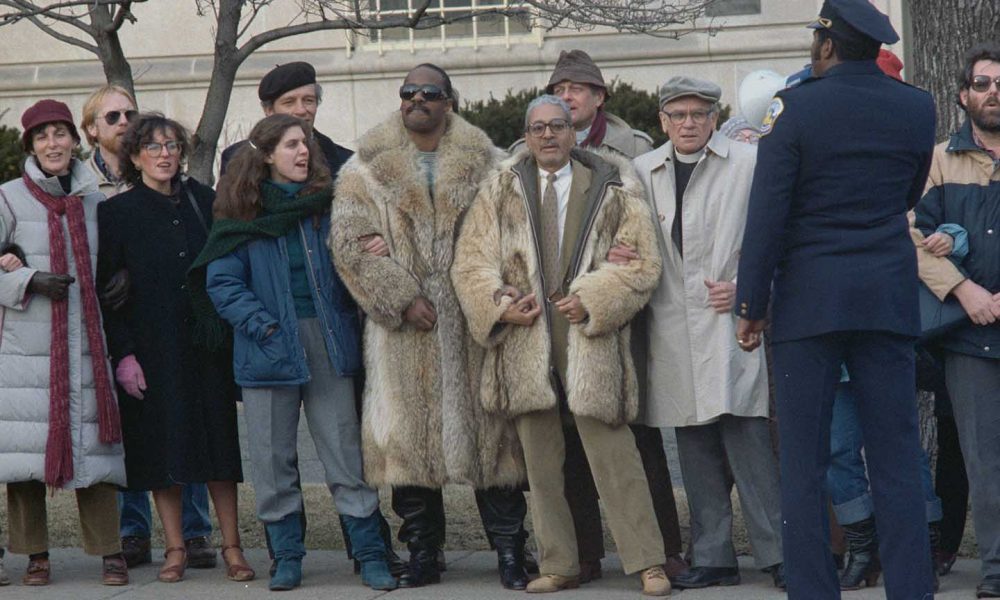
Songs are such powerful things: they can reassure, soothe, inspire and educate us – and that’s just for starters. Perhaps one reason for this is because they are performed by real people, human failings and all, which is why reading lyrics on paper will never quite add up. Songs have always held a mirror to the world, reflecting the things going on around us, and, arguably, music changes society like no other artform.
Traditionally, songs were passed down through the generations by being sung, like oral histories. Come the 20th century, however, technological advances quickly made the world a much smaller place and, thanks to cheap, widely-available audio equipment, songs could suddenly be distributed on a much larger scale.
While you’re reading, listen to our Music For Change playlist here.
Before long, records became agents of musical revolution. Prior to the availability of high-fidelity audio recordings, you’d have had to live near – and be able to afford visits – to the opera to hear world-changing music. Similarly, growing up in the UK, for example, you’d have never heard the blues as it was meant to be sung. The advent of recording technology changed that, significantly broadening people’s musical horizons. Now powerful spirituals were being recorded and distributed widely and quickly, enabling singers to share their experiences with ever increasing audiences, forging emotional connections with listeners in ways that sheet music found impossible. Songs could shape listeners in new ways, challenging people’s preconceived ideas of the world, shining a light on things that weren’t spoken of in the news of the day.
“A declaration of war”
The impact of Billie Holiday’s 1939 version of Abel Meeropol’s “Strange Fruit” is a perfect example of music’s ability to change society. The record producer and co-founder of Atlantic Records, Ahmet Ertegun, called it, “a declaration of war… the beginning of the civil-rights movement.” Until the late 30s, music hadn’t directly confronted the issues of racism and segregation in the US. Venues were segregated, with famous black musicians such as Louis Armstrong labeled as “Uncle Toms,” suggesting they’d only play for white audiences, where the money really was.
The first venue to publicly integrate musicians was New York’s Café Society. According to the owner at the time, Barney Joseph: “I wanted a club where blacks and whites worked together behind the footlights and sat together out front. There wasn’t, so far as I know, a place like it in New York or in the whole country.” Still, when Holiday first performed “Strange Fruit” at Joseph’s insistence, she was afraid. The song was a stark description of a postcard Meeropol had seen of black bodies hanging from a tree after a lynching. Back then, popular song wasn’t a place for such brutal truths, and Holiday would have been sorely aware of the trouble it could create. She later described what happened the first time she sang it in her autobiography: “There wasn’t even a patter of applause when I finished. Then a lone person began to clap nervously. Then suddenly everybody was clapping.”
The song went on to sell over a million copies when it was finally released by Holiday, and who knows how many hearts and minds it changed? The clue to its power might be in the way the lyric simply describes the scene: it’s presented for the listener to take at face value. Without suggesting solutions or even presuming to inform of the extent of the problem, “Strange Fruit” simply instills feelings of disgust and deep sadness. Those affected by the song went on to march together in support of Martin Luther King, Jr, and their grandchildren did the same for the Black Lives Matter movement. It had an immense impact on the way people thought about race.
Break down barriers
Segregation and institutionalized racism caused a deep rift in US society that continues to this day, but music was always at the forefront when it came to change. Swing-era bandleader Benny Goodman made history when he graced the hallowed stage of New York’s Carnegie Hall on January 16, 1938. Not only was the show notable for being the first occasion that real jazz, in all it’s improvised, hard-swinging glory, had been played at the prestigious venue, thus giving the music real cultural cache, but Goodman’s group was racially integrated. That it was unusual for a jazz group to feature black musicians seems absurd to modern sensibilities, but back then, so-called “European” jazz dominated concert halls. It was clean, symphonic, very white and a distant relation to the exciting jazz pioneered by the likes of Sidney Bechet and Duke Ellington. The audience reaction to the long-sold out concert was ecstatic, breaking down barriers for black performers.
While it would take politicians until 1964 to abolish the Jim Crow laws (state and local laws that enforced social segregation in the southern US states), musicians cared more about the skills and character of an individual than the color of their skin. Back in the 50s, white jazz pianist Dave Brubeck repeatedly ignored pressure from gig promoters across the US to replace the black bassist in his quartet, Eugene Wright. Brubeck not only made it publicly known that he would do no such thing, but insisted that Wright share the same facilities as his bandmates musicians and refused to perform for segregated audiences.
And then there’s the enormously influential Booker T & The MGs. As Stax Records’ house band the group were responsible for backing the likes of Otis Redding, Wilson Pickett, Sam & Dave, and Carla Thomas, among countless others. But many listeners would have been surprised to learn that a group that soulful was split evenly between black and white members.
The MGs were like their label in microcosm: the founders of Stax, a pair of white siblings called Jim Stewart and Estelle Axton, had, in 1957, set the label up in a predominately black neighborhood of Memphis, looking to sign any artist with the right sound, regardless of skin color – a bold move in a still-segregated city. All of the musicians who formed Booker T & The MGs had attended segregated schools, and, at the time of their 1962 hit single, “Green Onions”, wouldn’t have been able to even sit together in a restaurant in Memphis. Yet they showed America that music had the power to bring people together, and challenged prejudices wherever they played. Several years later, Sly And The Family Stone took The MGs’ mixed-race template and upped the ante by becoming one of the first mixed-race and mixed-sex bands, finding huge success with singles such as “Dance To The Music” and their equality anthem “Everyday People.”
Walk with a bit more pride
The advent of television made pop music more potent still. There was something even more thrilling about seeing songs performed in the flesh, and artists recognized the medium’s potential for challenging audience perceptions. Take for example Dusty Springfield’s regular show on BBC television in the UK. Springfield was only too aware that, as a white artist heavily influenced by black music, she had a debt of sorts to pay, and was insistent that her show featured black musicians. It was a bold move at the time, especially considering that Dusty was a mainstream program broadcasting to areas of the UK that would have been predominately white. Seeing those artists revered on national television would, however, have had quite an impact on audiences.
Over in the States, Motown, another color-blind soul label, launched its own assault on TV. Oprah Winfrey has spoken of the impact of seeing The Supremes on The Ed Sullivan Show – missing much of the performance while she phoned friends to tell them “black people are on television.” For African-American children in 1969, seeing the younger Jackson 5 beamed into your home was like watching your schoolmates set foot in places you could only ever dream of. Suddenly, success doesn’t seem completely unattainable. Michael Jackson looks sheepish, even, as he introduces “I Want You Back” on Ed Sullivan, but once it starts he’s totally convincing as a pop star – just about the most important thing a person could be in the late 60s.
Collapsing in mock anguish, as if his ten-year-old heart has somehow inherited the strain of a middle-aged divorcee and is buckling at the emotional weight of it, the young Jackson just about burns a hole in the floor of the television studio with his dance moves. And his flamboyant costume includes a purple hat and long, pointed collars – but what of it? The song he’s singing isn’t remotely political in subject matter – he sings sweetly of heartbreak, makes it sound appealing, even – but it changes everything: the way you see yourself, your family, your friends. That kid is a star. Seeing him sets off a near-synapse frying chain reaction of thoughts: anything is possible; the streets look somehow different when you go outside; you start to walk with a bit more pride.
Make your voice heard
Pop music has the ability to encourage individuals to think about where they’re going in the world; to inform the decisions they make; to help forge an identity. But while music might be consumed in solitude, taking a hold on imaginations as you listen in bedrooms and on headphones, it has a unifying effect. An individual touched by music is not isolated. They are one of millions of people affected by those moments, and in turn that has a huge effect on society.
The label that really did the most to show how music could change things was Motown. Launched in 1959 with an $8,000 loan, Motown’s founder, Berry Gordy, was the first African-American to run a record label. That would have been enough to earn him a place in the history books, but the music and stars that emerged from under his watchful eye came to dominate American music over the next few decades – indeed, fashion “The Sound Of Young America” – taking it worldwide and giving black artists opportunities that, just years before, would have been considered deeply fanciful.
Gordy’s artists produced irresistible, soulful pop that appealed across the board and which continues to resonate to this day. Stevie Wonder, The Supremes, Marvin Gaye, Smokey Robinson, Jackson 5, Gladys Knight & The Pips, The Temptations… their songs won hearts across the world and did inestimable good in opening closed minds to the idea that African-American musicians were just as worthy of attention as their white counterparts. The two minutes and 36 seconds of The Supremes’ perfect pop confection, “Baby Love,” might well have done more good than years of civil-rights campaigning – yes, music is that powerful.
As its artists matured, Motown released music that went beyond pop: Marvin Gaye’s What’s Going On, Stevie Wonder’s Innervisions, The Temptations’ “Papa Was A Rolling Stone” – all were considered statements of social awareness and black pride that mirrored the work of contemporaries such as Curtis Mayfield, James Brown, Sly Stone and Isaac Hayes. The groundbreaking work of this generation of black artists was continued by the likes of Gil Scott-Heron, Funkadelic and Parliament, which led to hip-hop. And the repercussions are still being felt today – R&B and hip-hop have been energized by the Black Lives Matter movement and vice versa.
Artists such as Kendrick Lamar and Solange, D’Angelo, Beyoncé, Blood Orange and Common, among many more, have released albums in recent years that have tackled America’s struggle with race relations head on. And in keeping with the complicated, multi-faceted nature of the problem, the songs come in many different forms, ranging from the tormented self-examination of Kendrick Lamar’s “The Blacker The Berry” (from 2015’s To Pimp A Butterfly, which also included the movement’s bona fide anthem in the defiant “Alright”) to Solange’s eloquent request that her culture is respected: “Don’t Touch My Hair” (from 2016’s A Seat At The Table).
Stars have also harnessed the power of video to tell their story, Beyoncé’s Lemonade was effectively an album-long expression of the black woman’s experience in America, and the accompanying “visual album” didn’t pull any punches. In the clip for “Forward,” the mothers of Trayvon Martin, Eric Garner and Michael Brown – the young black men whose deaths launched the Black Lives Matter movement – are seen holding photographs of their sons, while the video for “Formation” is a commentary on police brutality, self-love, the devastation caused by Hurricane Katrina and black wealth.
Just as reliant on provocative imagery and symbolism is the brilliant clip for Childish Gambino’s 2018 single, “This Is America,” which focuses on themes of gun violence and how black culture is often co-opted by white audiences for mass entertainment. The key here is that these have all been massive hits; the artists in question are producing radical work that communicates with mass audiences, showing that music has lost none of its power to foster change.
You don’t own me
Music has also made huge leaps and bounds for gender equality. Things are by no means perfect – women in bands are still sometimes treated as a novelty whose musical ability is met with surprise. But there’s a long history of songs that stand up for women’s rights.
Back in 1963, the message of Lesley Gore’s “You Don’t Own Me” felt shocking to many. Though the song was written by two men, Gore delivered it with such sass that she owned it. She later said, “When I first heard that song at the age of 16 or 17, feminism wasn’t quite a going proposition yet. Some people talked about it, but it wasn’t in any kind of state at the time. My take on that song was: ‘I’m 17, what a wonderful thing, to be able to stand up on a stage and shake your finger at people and sing “You don’t own me”.’”
Gore’s spirit lived on through every woman who has ever decided they wouldn’t be told what to do by men, from Aretha repurposing (and ultimately owning) Otis Redding’s “Respect,” to the formidable likes of The Slits, Bikini Kill, Sleater-Kinney, and Le Tigre, to the inspiring pop of Spice Girls and Destiny’s Child.
Just like the child watching Michael Jackson in 1969, imagine girls all over the world watching slack-jawed as Spice Girls ran amok in some dusty mansion for the “Wannabe” video in 1996 – somersaulting across the desserts, making snooty old men blush; singing a song about female friendship and empowerment that they’d written. The likes of “Wannabe” had the effect of making women all over the world more determined that they won’t be ignored. It’s a spirit that’s exemplified by the likes of Lorde, Taylor Swift, Grimes, and St Vincent – powerful women seizing total creative control and bending the industry (and society) to their vision.
Paradigms of their age
While music played a vital role in changing attitudes towards race and sexism in the US, it challenged the status quo elsewhere in plenty of different ways. The impact of The Beatles is a perfect example of the transformative power of pop music. It requires a deep breath before listing the ways in which their music helped change society: earning their own songwriting credits; bringing regional accents into popular culture; their utter delight in irreverence; their haircuts; their hold over screaming fans; their popularisation of esoteric ideas and foreign cultures…
Allen Ginsberg once remarked that they represented “the paradigm of the age”, and it’s easy to see why. The 60s swung to The Beatles’ beat. Their influence was everywhere. When John Lennon sang “Lucy In The Sky With Diamonds” and fans took it as a reference to LSD, generations of recreational drug use was affected. When his famous interview claiming that The Beatles were “more popular than Jesus” (part of a wider argument about the fading influence of religion) was brought to the attention of the American public, it unleashed incredible amounts of vitriol – but no doubt lit plenty of lightbulbs in the heads of his fans.
The Beatles – and the 60s as a whole – encouraged people to think outside the norm and to challenge accepted wisdom, something that has since been integral to the ways in which music changes society. A striking example came with the punk movement. It didn’t take long for the UK press to reduce a creative youth movement to tabloid caricature, but the central premise of the DIY punk movement – that you didn’t need a record company, or even any musical talent to make yourself and your opinions heard – has had a massive impact on society. The debut EP from Buzzcocks, Spiral Scratch, wasn’t even particularly political in nature, but the fact that they released it themselves, demystifying the process of releasing music, meant it was one of the most influential records of its time, inadvertently inspiring generations of artists.
Becoming more fluid
Indeed, one of the things pop music does, whether by design or not, is reflect the ideas and lifestyles of creative and interesting, forward-thinking people, thrusting them into the mainstream, be it by way of a catchy chorus, infectious beat or an audacious gimmick. It’s just about the fasting-acting agent of change on society imaginable; a song has the ability to turn the status quo on its head.
Equally, a song can speak to an oppressed group of people. Much like “Glad To Be Gay,” a 1978 song by Tom Robinson Band which dealt with public attitudes towards homosexuality by meeting them head-on in a show of defiance. Considering that so few pop songs had dealt explicitly with the subject up to that point (though plenty had offered veiled celebrations, from Cole Porter’s “You’re The Top” to Little Richard’s “Tutti Frutti,” while David Bowie’s Top Of The Pops performance of “Starman” included a gesture that empowered almost every gay young man who witnessed it), and that homosexuality in the UK had only been decriminalized in 1967, it’s an extraordinarily brave song that would have helped so many. Since then, things have improved and gay culture has become a much more accepted part of the mainstream, with music a huge conduit enabling that to happen.
As attitudes towards sexuality are becoming more fluid, musicians are once again at the forefront, just as they were in the 80s, when sexual provocateurs such as Prince and Madonna brought a more liberal approach to sexuality into the mainstream. On the eve of releasing his debut album proper, the R&B sensation Frank Ocean, currently one of the most influential musicians on the planet, posted a short note on his Tumblr which alluded to having had relationships with men and women. The album itself, Channel Orange, and its follow-up, Blonde, explored similar lyrical territory. His ex-Odd Future bandmate, Tyler, The Creator, followed suit before the release of his 2017 album, Flower Boy, and was met with overwhelming support. Both of these artists release music in genres that have been traditionally hostile towards homosexuality, yet they’ve been strong-minded enough to change that.
As with the race and gender revolutions of the past, music is once again at the forefront of contemporary discourse. Outspoken artists such as Anohni and Christine & The Queens, up to mainstream provocateurs such as Lady Gaga, are spreading awareness of gender fluidity, reaching audiences, and breaking down preconceived ideas. Just like music always has – and always will.
Discover more about how LGBTQ musicians broke barriers to the mainstream.





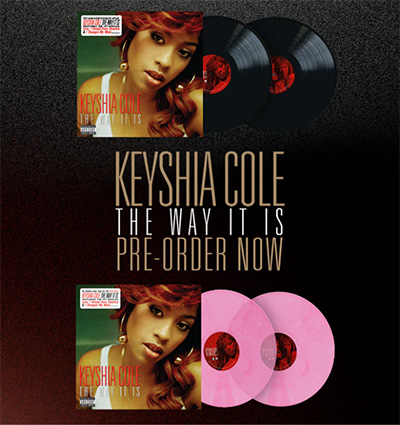
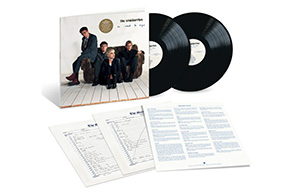

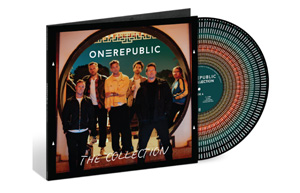



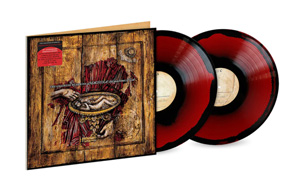
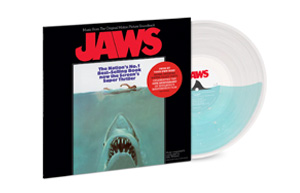
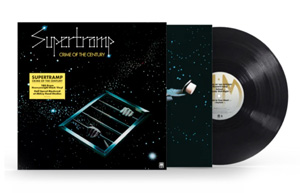
Rosa
February 7, 2019 at 8:33 pm
Where is Elvis!!!!
John Bianchi
July 11, 2019 at 9:56 pm
Confucius said that if you want to know the quality of a society, listen to its music. Well look at the crap that passes as “music” here. It’s just political complaining in the guise of entertainment. Nothing to do with music. Most of the tracks aren’t even played by musicians- just digital tracks designed to fill. True music is a reflection of the spirit of mankind, and has nothing to do with politics or personal grievances. Observe what it has done to fracture our society.